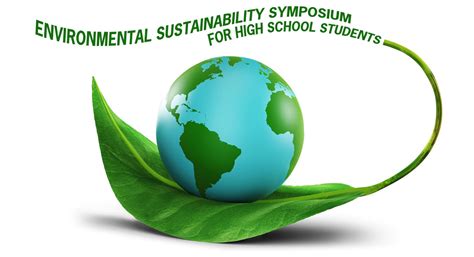Are you passionate about addressing global environmental challenges and creating sustainable solutions for the future? Today, we’ll be delving into the world of sustainability and environmental sciences at US universities. From understanding the pressing global environmental challenges to exploring the role of sustainability in tackling these issues, we’ll cover it all. We’ll also discuss the importance of environmental science education, the promotion of innovative sustainable solutions, and the investigation of renewable energy sources to combat climate change. Additionally, we’ll examine topics such as addressing water scarcity, urban planning for sustainable cities, biodiversity conservation, sustainable agriculture, and collaborative approaches for global environmental cooperation. Join us as we explore how US universities are at the forefront of fostering the knowledge and skills needed to create a more sustainable and environmentally conscious future.
Table of Contents
Understanding Global Environmental Challenges
As the world continues to grapple with pressing environmental issues, it is crucial to understand the global environmental challenges that we are facing today. From climate change to biodiversity loss, these challenges have far-reaching impacts on both the planet and its inhabitants.
One of the key global environmental challenges is climate change, which has led to rising temperatures, extreme weather events, and the melting of polar ice caps. These changes have profound effects on ecosystems, wildlife, and human societies, posing significant risks to the planet’s overall well-being.
In addition to climate change, biodiversity loss is another critical issue that requires our attention. The loss of species and habitats threatens the balance of ecosystems and the services they provide, such as clean air, water, and food.
By understanding the scale and complexity of these global environmental challenges, we can work towards finding sustainable solutions and strategies to mitigate their impacts and safeguard the future of our planet.
Exploring the Role of Sustainability in Tackling Global Issues
When it comes to addressing the pressing global challenges we face today, sustainability plays a critical role in ensuring long-term solutions. By adopting sustainable practices and promoting environmental stewardship, we can effectively tackle issues such as climate change, habitat loss, and resource depletion, among others.
Embracing sustainability means considering the economic, social, and environmental impacts of our actions. It involves making choices that not only meet the needs of the present but also preserve resources for future generations. This holistic approach to problem-solving is essential in addressing complex, interconnected global issues in a way that ensures lasting results.
Furthermore, sustainability is closely linked to innovation, as organizations and individuals seek new ways to minimize their environmental footprint and optimize resource use. From businesses implementing eco-friendly practices to researchers developing sustainable technologies, there is a growing emphasis on finding creative, sustainable solutions to pressing global challenges.
Ultimately, exploring the role of sustainability in tackling global issues requires a collective effort. By working together to integrate sustainable principles into various aspects of society, we can build a more resilient and environmentally conscious world for future generations.
The Importance of Environmental Science Education
Environmental science education is crucial for promoting awareness and understanding of the various environmental challenges that our planet is facing. Through education, individuals can gain knowledge about the causes and effects of environmental issues such as climate change, pollution, deforestation, and biodiversity loss. This knowledge can empower individuals to make informed decisions and take action towards sustainable practices and solutions.
Moreover, environmental science education plays a vital role in shaping the attitudes and values of the younger generation towards the environment. By integrating environmental concepts into school curriculums, students can develop a sense of responsibility and appreciation for nature. This foundation of awareness and appreciation can inspire future leaders and innovators to pursue careers in environmental science, leading to a greater impact on environmental preservation and sustainability.
Furthermore, environmental science education can also contribute to the development of critical thinking and problem-solving skills. Students who are exposed to environmental science concepts are encouraged to analyze complex environmental issues, evaluate potential solutions, and engage in debates and collaborative projects. These skills are essential for addressing current and future environmental challenges, as they foster a sustainable mindset and encourage innovative approaches to environmental conservation.
In conclusion, environmental science education is not only important for raising awareness about global environmental challenges, but it also plays a significant role in shaping the attitudes, values, and skills of individuals towards environmental stewardship. By prioritizing and investing in environmental science education, we can cultivate a society that is equipped to address and mitigate the environmental issues facing our planet.
Promoting Sustainable Solutions through Research and Innovation
As the world continues to face a myriad of environmental challenges, it has become increasingly crucial to promote sustainable solutions through research and innovation. With the detrimental effects of climate change becoming more apparent, it is imperative that we invest in finding new and innovative ways to tackle these global issues.
Through sustained research efforts, we can develop alternative technologies and methods that prioritize environmental sustainability. By investing in research and development, we can discover new solutions that minimize our impact on the environment while still meeting the needs of society.
Furthermore, fostering a culture of innovation is essential in promoting sustainable solutions. Encouraging and supporting innovators in their efforts to develop eco-friendly products, renewable energy sources, and resource-efficient technologies can lead to breakthroughs that benefit both the environment and the economy.
In conclusion, promoting sustainable solutions through research and innovation is vital for addressing the pressing environmental challenges we face today. By investing in research, fostering innovation, and embracing sustainable practices, we can work towards a greener and more sustainable future for the planet.
Investigating Renewable Energy Sources to Combat Climate Change
As the global community grapples with the urgent need to combat climate change, the investigation of renewable energy sources has become a key focus in the quest for sustainable solutions. Renewable energy sources such as solar, wind, hydroelectric, and geothermal power offer the promise of clean and abundant energy that can reduce the reliance on fossil fuels and mitigate the impact of climate change.
Researchers and innovators are tirelessly exploring new technologies and methods to harness the power of renewable energy sources and make them more accessible and efficient. From advancements in solar panel technology to the development of offshore wind farms, the investigation of renewable energy sources is driving the transition towards a more sustainable and environmentally-friendly energy landscape.
One of the critical aspects of investigating renewable energy sources is the potential to create new economic opportunities and jobs in the green energy sector. By investing in the development and deployment of renewable energy technologies, countries can stimulate economic growth, while simultaneously reducing carbon emissions and improving air quality.
In conclusion, the investigation of renewable energy sources presents a proactive and forward-thinking approach to combating climate change. By prioritizing the transition to clean and sustainable energy sources, we can work towards a healthier planet and a more secure future for generations to come.
Addressing Water Scarcity: Innovations and Conservation Techniques
Water scarcity is a pressing environmental issue that affects millions of people around the world. The increasing demand for water, coupled with the effects of climate change, has led to water shortages in many regions. In order to address this challenge, innovative solutions and conservation techniques are crucial.
One of the key innovations in addressing water scarcity is the implementation of water-saving technologies. These technologies, such as drip irrigation and low-flow fixtures, help to reduce water usage and minimize waste. Additionally, the use of water-efficient crops and drought-resistant plants in agriculture can help to conserve water resources.
Conservation techniques play a vital role in addressing water scarcity as well. Rainwater harvesting, for example, allows for the collection and storage of rainwater for future use. This can help to supplement traditional water sources and reduce reliance on finite water supplies. Furthermore, investing in water reclamation and desalination technologies can provide alternative sources of water for communities facing scarcity.
In conclusion, addressing water scarcity requires a combination of innovative solutions and conservation techniques. By implementing water-saving technologies and promoting sustainable water practices, we can work towards ensuring access to clean and reliable water for all.
Urban Planning for Sustainable Cities: Strategies and Initiatives
Urban planning is crucial for creating sustainable cities that prioritize environmental responsibility and the well-being of their inhabitants. With the world’s population rapidly urbanizing, it is more important than ever to develop cities that are designed to minimize their environmental impact and promote a high quality of life for residents.
One key strategy for sustainable urban planning is implementing green spaces and parks throughout the city. These areas provide vital ecosystem services, such as air purification, temperature regulation, and flood prevention. They also offer recreational opportunities for residents and can improve mental and physical health.
Another important initiative is the integration of public transportation systems and the promotion of walkable and bike-friendly urban environments. By reducing reliance on personal vehicles, cities can decrease air pollution, traffic congestion, and carbon emissions. This not only benefits the environment but also improves public health and accessibility for all residents.
Additionally, sustainable cities prioritize energy-efficient and environmentally friendly building practices. This includes the use of renewable energy sources, green building materials, and energy-efficient design principles. By promoting sustainable construction and retrofitting existing buildings, cities can significantly reduce their carbon footprint and resource consumption.
Biodiversity Conservation: Preserving Ecosystems and Protecting Species
Conserving biodiversity is vital for maintaining the health of ecosystems and protecting the world’s species. Biodiversity refers to the variety of life on Earth, including the different plants, animals, and microorganisms, as well as the ecosystems they form. Preserving this variety is essential for the stability and resilience of ecosystems, as well as for the well-being of all living organisms.
One of the key reasons for biodiversity conservation is to protect endangered species from extinction. As human activities such as deforestation, habitat destruction, and climate change continue to threaten the survival of numerous species, conservation efforts become increasingly crucial. By preserving biodiversity, we can safeguard the future of countless plant and animal species, preventing them from disappearing forever.
Furthermore, biodiversity conservation plays a pivotal role in maintaining the balance of ecosystems and supporting human livelihoods. Ecosystems rely on a diverse range of species to function properly, from pollinators that enable plant reproduction to predators that control populations of other species. By protecting biodiversity, we can ensure the stability and productivity of ecosystems, which in turn benefits humans by providing valuable resources such as clean air, water, food, and medicine.
Overall, biodiversity conservation is a critical endeavor that requires collaborative efforts from individuals, communities, governments, and organizations worldwide. By valuing and protecting the diversity of life on Earth, we can preserve ecosystems, protect species, and sustain the well-being of present and future generations.
Sustainable Agriculture: Enhancing Food Production with Environmental Responsibility
In today’s world, the demand for food is growing rapidly due to the increasing global population. As a result, the agricultural sector is facing significant challenges in meeting this demand while also maintaining environmental sustainability. Sustainable agriculture is the key to addressing this issue, as it focuses on enhancing food production while taking into account environmental responsibility.
One of the main principles of sustainable agriculture is to reduce the use of harmful chemicals and pesticides in farming practices. By doing so, we can protect the environment from pollution and minimize the negative impact on ecosystems. Additionally, sustainable agriculture promotes the use of organic and natural fertilizers, which not only help to improve soil health but also contribute to the overall well-being of the environment.
Furthermore, sustainable agriculture emphasizes the importance of conserving water resources and reducing waste. Through the implementation of efficient irrigation systems and the adoption of water-saving practices, farmers can minimize water usage and prevent water scarcity. By reducing waste, such as through proper crop rotation and waste recycling, sustainable agriculture also contributes to minimizing environmental degradation.
Overall, sustainable agriculture plays a crucial role in enhancing food production while ensuring environmental responsibility. By implementing sustainable practices, we can create a more resource-efficient and environmentally-friendly agricultural system that meets the growing demand for food without compromising the well-being of the planet.
Collaborative Approaches for Global Environmental Cooperation
In today’s interconnected world, it has become increasingly evident that addressing global environmental challenges requires collaborative efforts from nations, organizations, and individuals around the world. The collaborative approaches for global environmental cooperation play a crucial role in finding sustainable solutions to pressing issues such as climate change, biodiversity loss, and water scarcity. By working together, we can leverage the expertise, resources, and knowledge of diverse stakeholders to develop innovative strategies and initiatives that have a positive impact on the environment.
One of the key components of collaborative approaches is the exchange of ideas and best practices between different countries and regions. This sharing of knowledge allows nations to learn from each other’s successes and failures, ultimately leading to the implementation of more effective environmental policies and practices. International cooperation also facilitates the development of common goals and targets that can guide nations in their efforts to reduce carbon emissions, protect critical habitats, and promote sustainable development.
Furthermore, public-private partnerships are another important aspect of global environmental cooperation. When governments, businesses, and non-profit organizations collaborate, they can pool their resources and expertise to tackle complex environmental problems more effectively. These partnerships can lead to the development and implementation of innovative technologies, the creation of sustainable business practices, and the scaling up of conservation efforts to protect natural ecosystems and species.
Ultimately, collaborative approaches for global environmental cooperation are essential for achieving long-term sustainability and ensuring the health of the planet for future generations. By working together, we can overcome the challenges posed by environmental degradation and create a more resilient and thriving global ecosystem.






